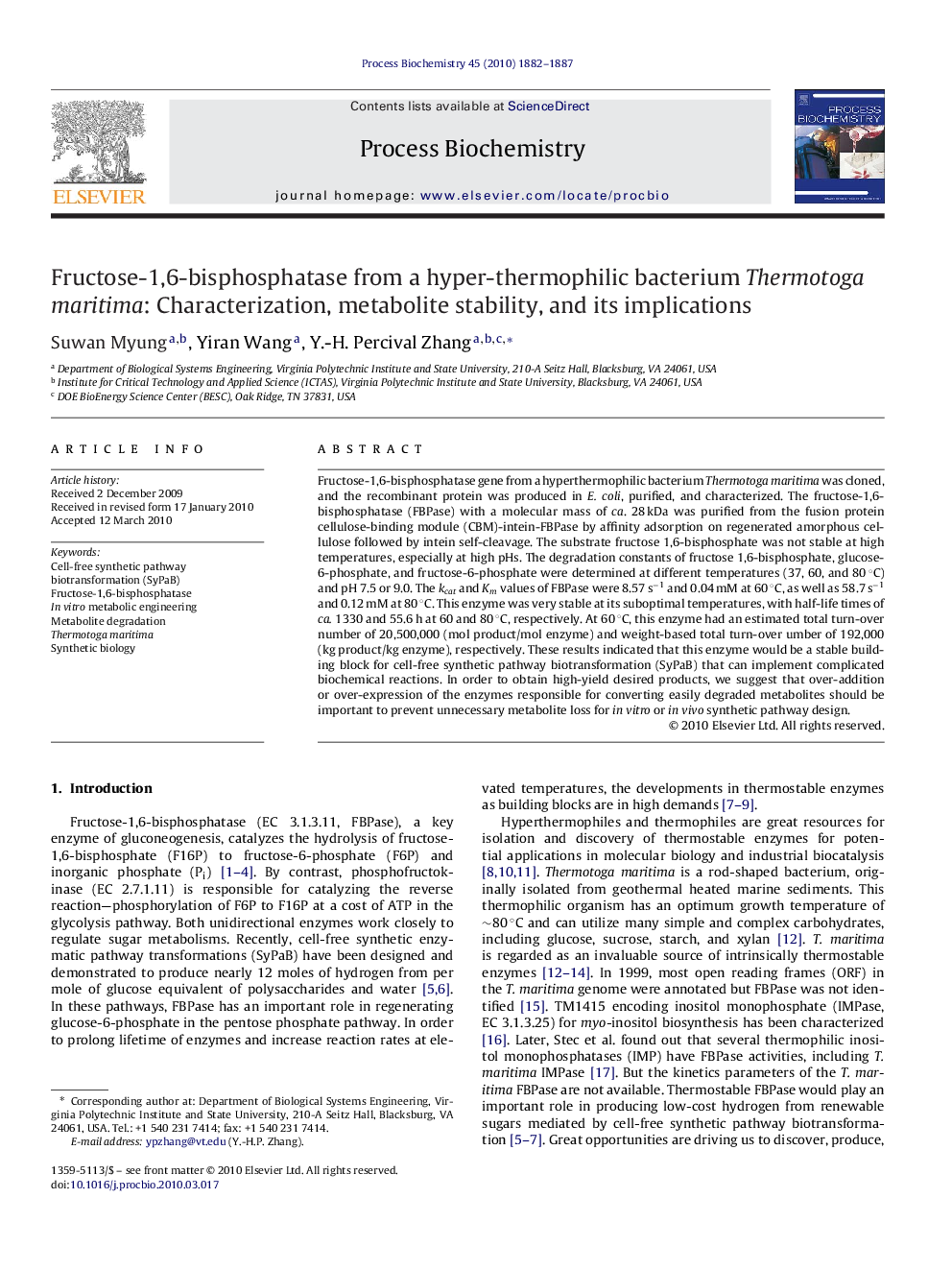| Article ID | Journal | Published Year | Pages | File Type |
|---|---|---|---|---|
| 34949 | Process Biochemistry | 2010 | 6 Pages |
Fructose-1,6-bisphosphatase gene from a hyperthermophilic bacterium Thermotoga maritima was cloned, and the recombinant protein was produced in E. coli, purified, and characterized. The fructose-1,6-bisphosphatase (FBPase) with a molecular mass of ca. 28 kDa was purified from the fusion protein cellulose-binding module (CBM)-intein-FBPase by affinity adsorption on regenerated amorphous cellulose followed by intein self-cleavage. The substrate fructose 1,6-bisphosphate was not stable at high temperatures, especially at high pHs. The degradation constants of fructose 1,6-bisphosphate, glucose-6-phosphate, and fructose-6-phosphate were determined at different temperatures (37, 60, and 80 °C) and pH 7.5 or 9.0. The kcat and Km values of FBPase were 8.57 s−1 and 0.04 mM at 60 °C, as well as 58.7 s−1 and 0.12 mM at 80 °C. This enzyme was very stable at its suboptimal temperatures, with half-life times of ca. 1330 and 55.6 h at 60 and 80 °C, respectively. At 60 °C, this enzyme had an estimated total turn-over number of 20,500,000 (mol product/mol enzyme) and weight-based total turn-over umber of 192,000 (kg product/kg enzyme), respectively. These results indicated that this enzyme would be a stable building block for cell-free synthetic pathway biotransformation (SyPaB) that can implement complicated biochemical reactions. In order to obtain high-yield desired products, we suggest that over-addition or over-expression of the enzymes responsible for converting easily degraded metabolites should be important to prevent unnecessary metabolite loss for in vitro or in vivo synthetic pathway design.
